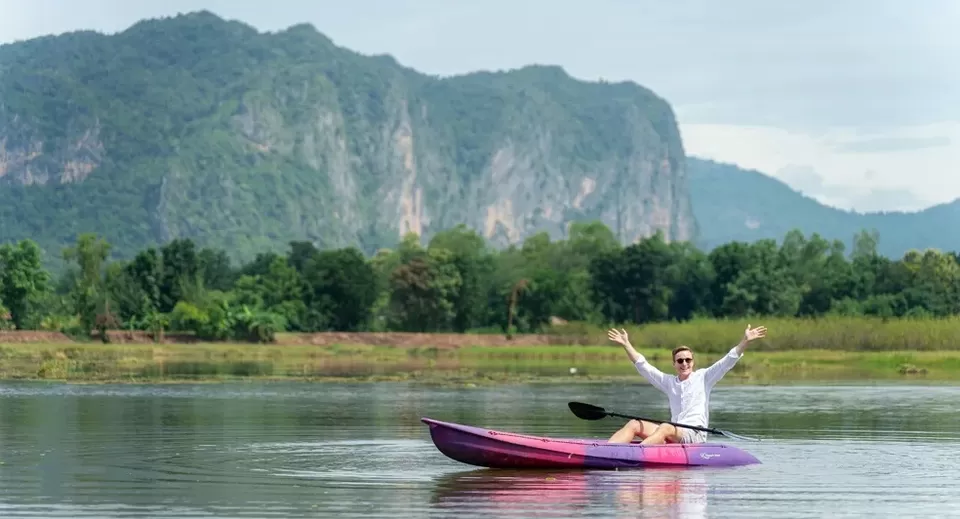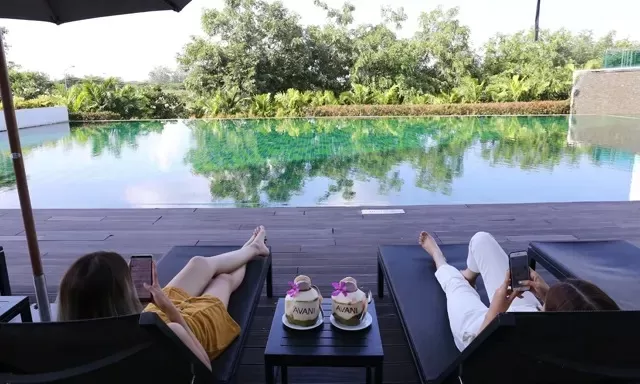In recent years, Khon Kaen, a city in northeastern Thailand, has been undergoing a remarkable transformation, positioning itself as a burgeoning travel hotspot in 2025. This evolution is driven by strategic infrastructure developments, sustainable urban planning, and a commitment to enhancing the quality of life for its residents and visitors alike.
Strategic Infrastructure Developments
A cornerstone of Khon Kaen's emergence as a travel destination is its strategic infrastructure projects. The city is set to become a pivotal hub in the Thai-China high-speed rail network, with the Bangkok-Nong Khai High-Speed Railway passing through it. This railway will connect Bangkok to the Vientiane-Boten Railway, significantly reducing travel time between major cities and enhancing Khon Kaen's accessibility. Currently, the journey from Bangkok to Khon Kaen takes approximately six hours by train; with the completion of the high-speed rail, this is expected to decrease substantially, making the city more attractive to both domestic and international tourists.
Additionally, the development of the Khon Kaen Innovation Center exemplifies the city's commitment to modernisation. Located on Sri Chant Road, this center is poised to become a focal point for technological advancement and entrepreneurial activities, attracting business travellers and fostering a vibrant economic environment.
Emergence as a Medical Hub
Khon Kaen's healthcare infrastructure is undergoing significant enhancements, further boosting its appeal as a destination. The expansion of Srinagarind Hospital at Khon Kaen University into a comprehensive Medical Hub is a testament to this progress. With an investment exceeding 4,000 million Baht, the project aims to add 600 beds, 25 operation rooms, 117 ICU rooms, and accommodations for patients' relatives. Upon completion, this facility will not only serve the northeastern region but also neighbouring countries, positioning Khon Kaen as a center for medical tourism.
Sustainable Urban Development
The city's commitment to sustainable growth is evident through initiatives supported by international organisations. Collaborations with entities like the World Bank aim to unlock Khon Kaen's potential for sustainable and inclusive development. These efforts focus on improving urban planning, enhancing public transportation, and promoting environmentally friendly practices, all of which contribute to a more livable city for residents and a more attractive destination for tourists.

Cultural and Natural Attractions
Khon Kaen boasts a wide range of cultural and natural attractions that are increasingly drawing attention. The city is home to significant temples such as Wat Nong Wang and Wat Thung Setthi, which offer insights into the region's spiritual heritage. The Khon Kaen National Museum provides a deep dive into the area's history and archaeology, enriching visitors' understanding of northeastern Thailand's cultural evolution.
Natural attractions like the Phu Wiang National Park, known for its dinosaur fossils, and the Ubol Ratana Dam, offering picturesque landscapes and recreational activities, cater to nature enthusiasts and adventure seekers alike. These sites not only preserve the region's natural beauty but also provide educational and leisure opportunities for visitors.
Economic Growth and Investment
Khon Kaen's inclusion in the Northeastern Economic Corridor (NeEC) further amplifies its appeal. The NeEC, encompassing provinces like Nakhon Ratchasima, Khon Kaen, Udon Thani, and Nong Khai, is designated as a special economic zone focusing on bioeconomy initiatives, particularly in the cultivation and production of tapioca, rice, and sugar cane. This strategic positioning not only boosts the local economy but also attracts business travellers and investors, thereby increasing tourism.

Hospitality Sector Growth
To cater to the increasing influx of tourists, Khon Kaen's hospitality industry has expanded considerably. As of 2025, there are over 300 operating Khon Kaen hotels in Thailand. Travellers can expect to pay around $40 per night for accommodation, offering a blend of affordability and quality.
A standout option for visitors is the Avani Khon Kaen Hotel & Convention Centre, a premier hotel offering luxurious accommodations, exceptional dining, and state-of-the-art conference facilities. Perfect for both business and leisure travellers, this hotel contributes significantly to elevating Khon Kaen’s tourism appeal. Notably, September emerges as the best month to visit, with average hotel ratings peaking, while March offers economical rates.
Khon Kaen's rise as a travel hotspot is part of a broader tourism boom in Thailand. In January 2025, Thailand welcomed a record-breaking 3.7 million tourists, signaling a robust recovery and growth in the tourism sector. This surge is attributed to the country's strategic initiatives to promote diverse destinations beyond traditional tourist spots, with cities like Khon Kaen benefiting from this expanded focus.













